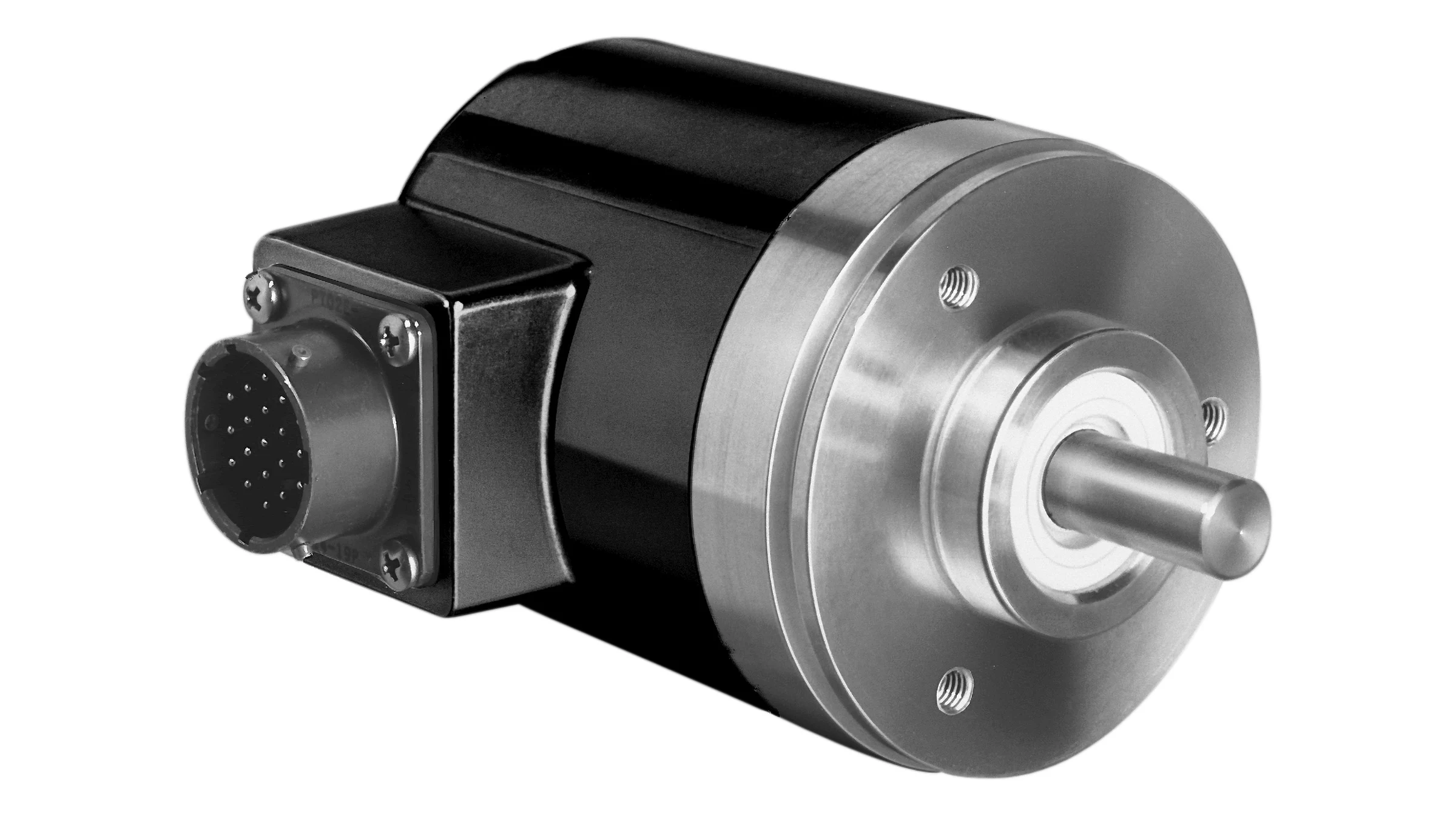What Is an Encoder? How Does It Work?
An encoder is a device that compiles and converts signals (such as bit streams) or data into signal forms that can be used for communication, transmission, and storage. The encoder converts angular displacement or linear displacement into electrical signals. The former is called a code disc and the latter is called a code ruler.

The encoder is mainly composed of a code disk (circular grating, indicating grating), body, light-emitting device, photosensitive device and other components.
(1) The circular grating is composed of radial light and dark stripes coated on a transparent material or carved on a metal material. The spacing between adjacent stripes is called a grating section, and the number of grating sections in the entire circumference of the grating is the number of pulses (resolution) of the encoder.
(2) The indicator grating is a fixed piece, but the window stripe markings are exactly the same as the circular grating stripe markings. to
(3) The machine body is the carrier for assembling circular gratings, indicating gratings and other components.
(4) The light-emitting device is generally an infrared light-emitting tube. to
(5) The photosensitive device is a high-frequency photosensitive element; generally there are silicon photovoltaic cells and photosensitive transistors.
According to the working principle, encoders can be divided into two categories: incremental and absolute.
Incremental encoder
1. An incremental encoder converts displacement into a periodic electrical signal, and then converts this electrical signal into counting pulses. The number of pulses is used to represent the size of the displacement.
2. Advantages and Disadvantages of Incremental Code Disk
advantage:
(1) High accuracy (frequency multiplier circuit can be used to further improve accuracy);
(2) It has a simple structure and low cost. It is suitable for angle measurement and speed measurement without contact. It has high reliability and long life.
shortcoming:
It is necessary to search for zero first after starting up. During the pulse transmission process, the cumulative error caused by interference requires that the counter and speed be subject to certain restrictions.
3. Precautions for use
(1) Consider the zero-finding problem
(2) Consider the possible cumulative errors caused by interference
(3) Consider the contradiction between maximum speed and resolution
(4) Consider the counter overflow problem
Absolute encoder
1. The absolute pulse encoder disk is an absolute angle position detection device. Its position output signal is a digital signal of a certain format. It represents the absolute position reached after displacement. The digital signals of the absolute position of the starting point and the end point are used. , the magnitude of the displacement can be obtained after calculation.
2. The structure consists of three parts, the rotating code disk, the light source and the optical sensor. Optical code track, each code track has transparent and opaque areas distributed according to certain rules.
3. Principle
The light from the light source passes through the optical system, passes through the light-transmitting area of the code disc, and is received by the photosensitive element behind the narrow slit, and the output is "1"; if it is blocked by the opaque area, the photosensitive element outputs "0". The output code combination of each code channel represents the corner position of the code wheel.
4. Advantages and Disadvantages of Absolute Code Disk
advantage:
(1) High precision, no contact, long life
(2) No need to search for zero when starting up
(3) There is no cumulative error
(4) No counter is required and the allowable speed is high.
shortcoming:
(1) Complex structure and large volume
(2) Expensive
5. Precautions for use
1. The power supply must be reliable and pay attention to the voltage drop during long-distance transmission.
2. Consider handling errors
3. Consider the processing of zero crossings

